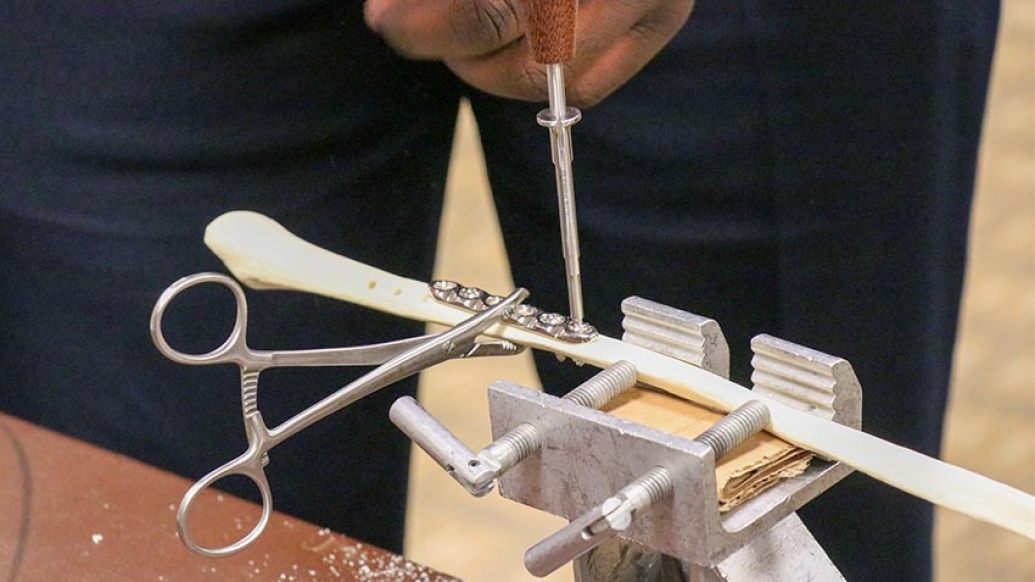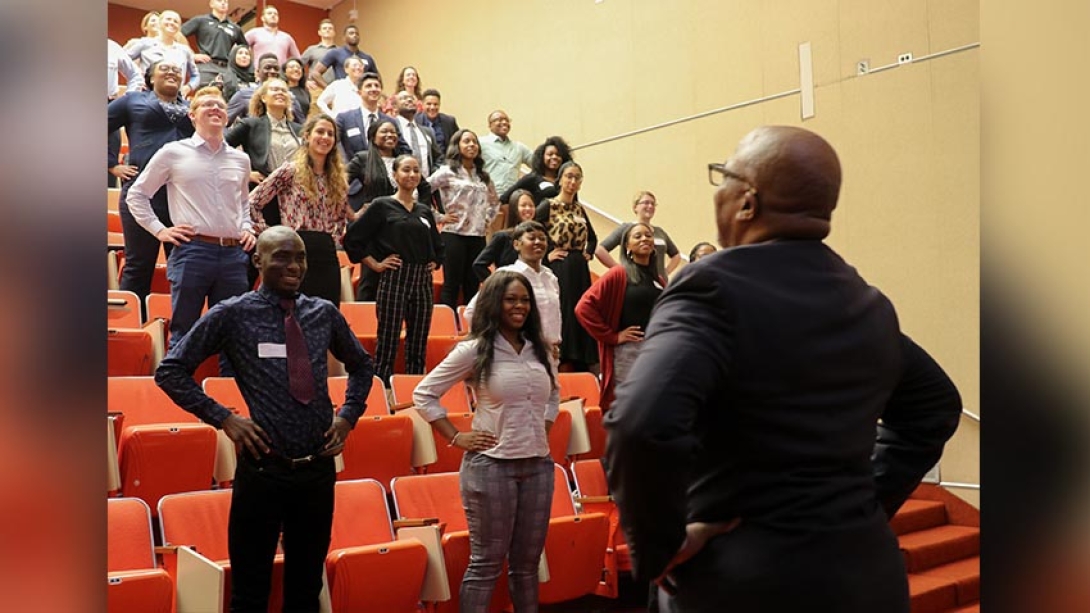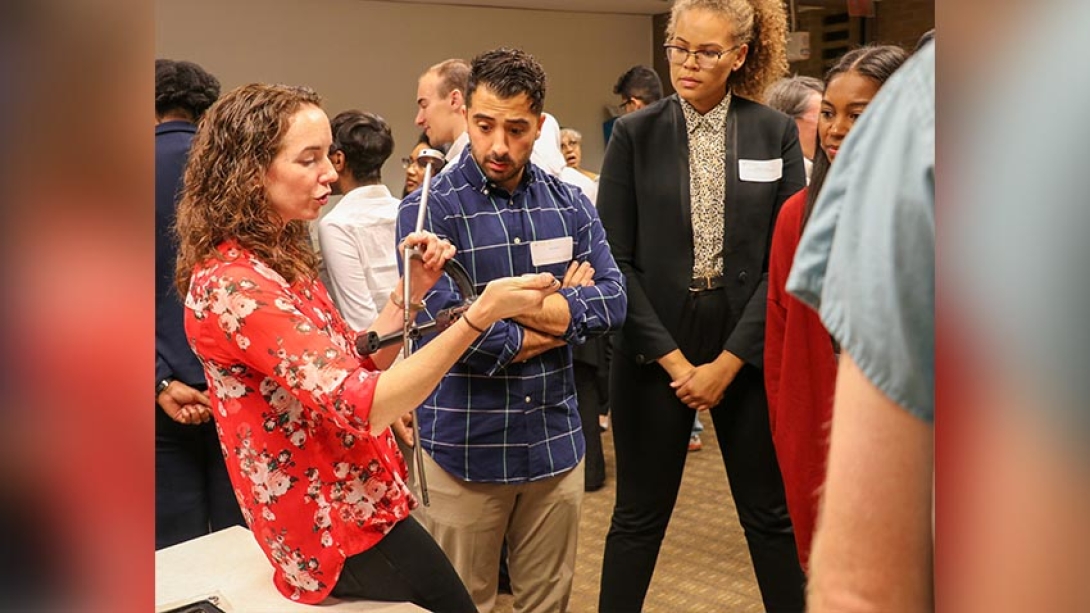To encourage medical students who are underrepresented in medicine to enter highly competitive specialties, two Michigan Medicine specialties have made a partnership with a national organization that offers hands-on learning experiences.
12:00 PM
Author |

A pipeline program is engaging minority medical students in medical specialties where they are typically underrepresented in hands-on, creative ways.
"Michigan Medicine's Department of Orthopaedics began partnering with Nth Dimensions last year," says Eileen Crawford, M.D., an assistant professor of orthopaedic surgery and associate director of the Michigan Medicine Orthopaedic Surgery Residency Program.
"Nth Dimensions is a national organization founded by Dr. Bonnie Mason, a female African American orthopaedic surgeon who started the program to get medical students involved and interested in medical specialties, such as orthopaedics, where women and minorities are greatly underrepresented."
Crawford says orthopaedics in particular has low numbers of women and minority physicians.
"Data shows only about 5 to 12% of orthopaedic surgeons are women and only about 3% are African Americans," Crawford says.
To engage medical students from across the state of Michigan who are underrepresented in medicine, the Michigan Medicine orthopaedics team established a relationship with Nth Dimensions in 2018.
"We hosted our first bioskills workshop last December and held our second workshop in September of this year," Crawford says.
Hands-on learning
The September workshop hosted more than 50 participants, including first-year medical students from University of Michigan Medical School, Michigan State University and Wayne State University, as well as undergraduate students.
"The first year we hosted the workshop we had around 20 participants, and we were excited to see that number double for this year's workshop," Crawford says. "And this year we co-hosted the workshop with our colleagues in radiology."
Crawford explains the workshop began with guest speaker, William Ross, M.D., director of clinical programs at Nth Dimensions and orthopaedic surgeon at JFL Hospital in St. Croix, USVI, who encouraged the students to keep exploring the fields of orthopaedics and radiology, and how they can make a difference in their chosen specialty.

Next, participants moved to the hands-on learning section of the workshop.
"We had about eight stations set up that taught students the fundamentals of different procedures in each specialty," Crawford says. "For example, on the orthopaedics side we had synthetic bones made out of dense foam material and the students could practice drilling through them and installing plates and screws to fix the injury."
She adds that it was a great opportunity for faculty and residents to get involved, too.
"We had 15 faculty members and residents who taught the students at each station as they rotated through," Crawford says. "They would explain what they do in their day-to-day job, how to perform the learning activity and operate the ultrasound or power tools, and would answer questions."

At the end of the workshop, participants and their teachers came back together in a large group to have a question and answer session where students could ask any questions they had about the specialties.
"It was a great learning opportunity for everyone involved," Crawford says.
Future learning
Crawford has additional plans for partnering with Nth Dimensions on future learning opportunities.
"Our next step is to get these medical students who attended workshops to apply for a summer internship program," Crawford explains. "It's a great opportunity as they get matched with a physician who partners with Nth Dimensions and they can learn so much from that one-on-one mentoring experience. In fact, we had our first intern this past fall and it was a fantastic experience."
In addition, she hopes the workshops and educational events can continue.
"We hope the workshop and hosting a summer intern become annual events for us," Crawford says.

Explore a variety of healthcare news & stories by visiting the Health Lab home page for more articles.

Department of Communication at Michigan Medicine
Want top health & research news weekly? Sign up for Health Lab’s newsletters today!





